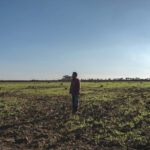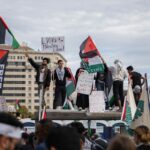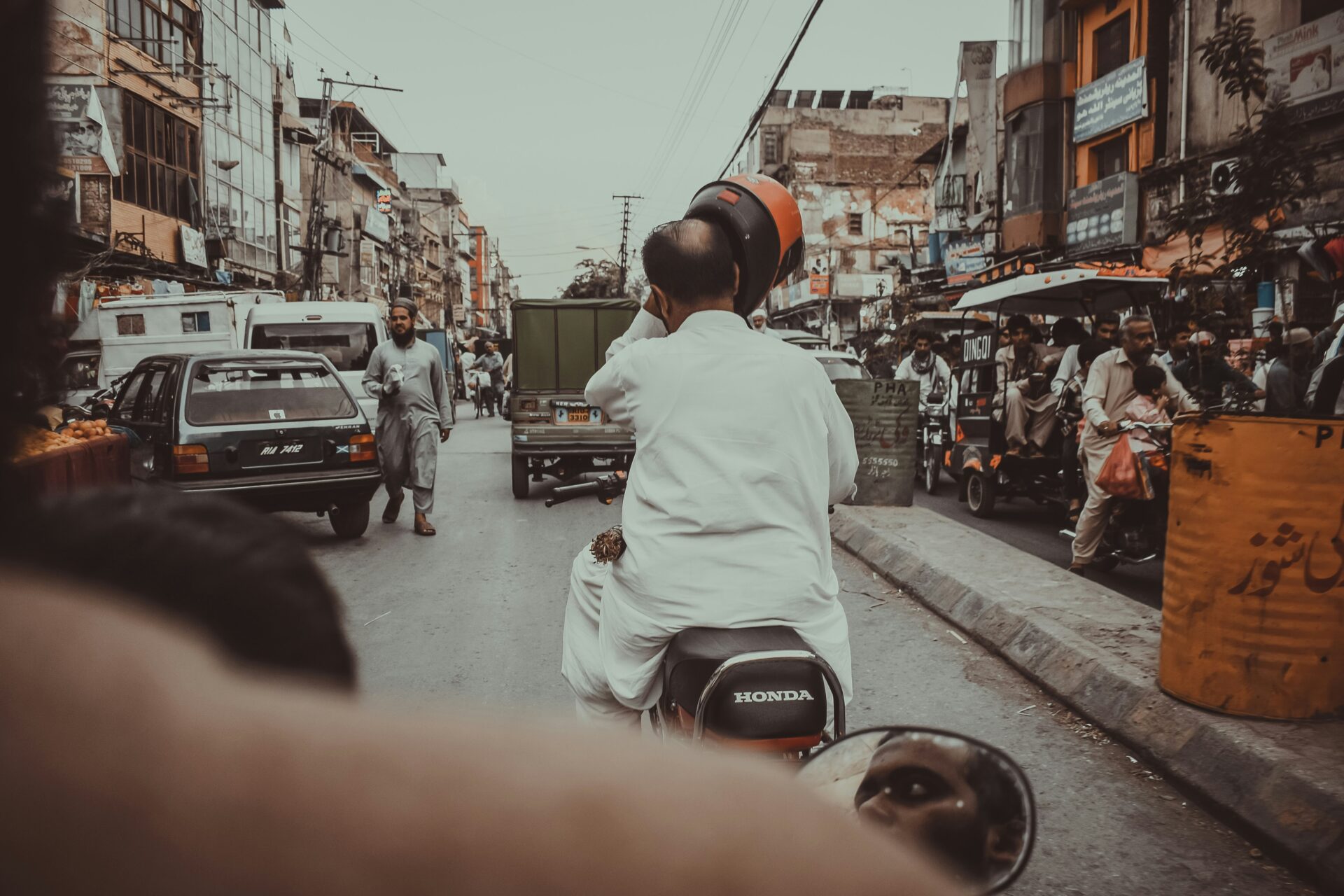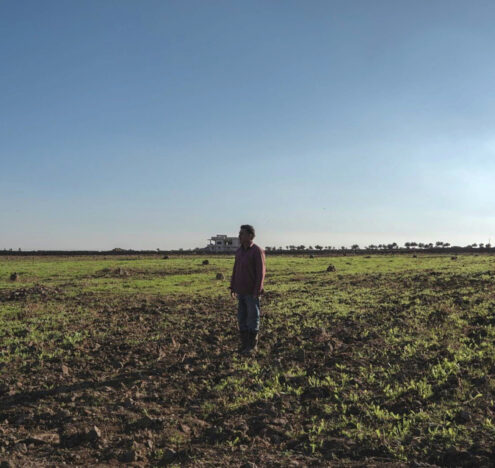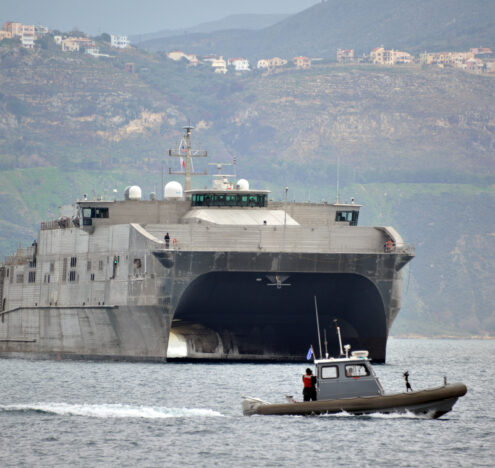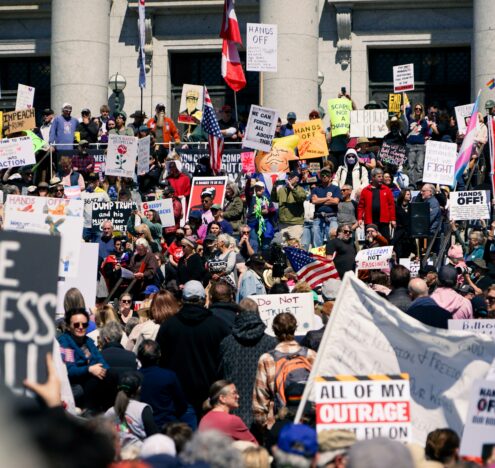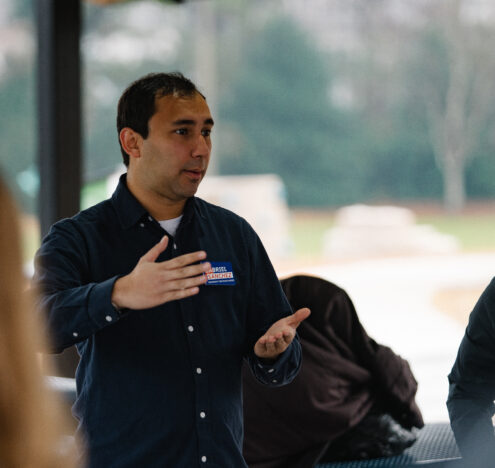“Can you make food from peace and eat it?” Ihsan Ullah Ahmadzai shares a running Afghan joke that makes light of the endless diplomatic negotiations that encircle the plight of Afghan refugees while their daily lives remain unstable, and many face impossible choices to survive.
Ahmadzai is a human rights journalist in Islamabad who has been documenting the fallout for Afghan refugees since Pakistan launched the third phase of its “Illegal Foreigners’ Repatriation Plan.” When the Proof of Registration (PoR) cards of 1.4 million Afghan refugees expired on June 30, Karachi authorized its latest controversial wave of deportations.
Thirty-one years old, Ahmadzai was born in Rawalpindi, Pakistan, to Afghan refugee parents. When his family returned to Afghanistan in 2016, surrendering their refugee status, he went to University in Kabul due to barriers to schooling in Pakistan. There, he became involved in journalism and NGO work. When the Taliban came back to power, he fled back to Pakistan. “I drove a taxi for a year,” he says, before working in Pakistani public radio and television, and becoming a local social media celebrity.
But the Taliban’s threats followed him. Ahmadzai’s human rights and political media commentary earned him two arrest warrants in 2022 and 2024. His brother was killed in Turkey by members of the Taliban and an allied gang, he says, because of political differences and supporting the Ashraf Ghani government. He has received a death threat.
Pakistan does not have a national law for refugees, and is not a signatory to the 1951 Convention Relating to the Status of Refugees. Under the country’s Citizenship Act, anyone born in the country should be granted citizenship, but refugees are largely dealt with through the Foreigners Act, which grants the state broad powers. Following the 1979 Soviet takeover of Afghanistan, Pakistan became home to roughly 3 million refugees fleeing the instability. Over nearly fifty years of protracted conflict, 6.1 million Afghans globally were refugees, asylum-seekers, or sought international protection by the end of last year. When the Taliban took over the country, the UNHCR reported 117,547 new arrivals to Pakistan, with 35,289 arriving just in August 2021.
Pakistan’s three-phase repatriation plan for the 2.6 million Afghan refugees living in the country was first introduced in October 2023. Authorities came for the 322,000 undocumented Afghans in November 2023. Then, they targeted the roughly 746,000 Afghan Citizen Card (ACC) holders in April 2025, with 109,891 people coming into Afghanistan in a single month. In July, when the PoR cards expired, the government threatened deportations for the 1.5 million refugees who had formerly had temporary protection.
Following an extension to the deportation deadline last month, round-ups were restarted in September. Despite Pakistani authorities emphasizing voluntary return — what a Khyber official described as “honorable and dignified” — many Afghans who have lived in Pakistan for decades feel pressured and blindsided.
“It’s my turn now,” Ahmadzai says. “Sooner or later it will happen.”
Some have told Ahmadzai to be more low-profile. Energetic and passionate in front of his makeshift green-screen, it’s hard to imagine him subdued. “I’m stubborn,” he says. Until February, he awaited refugee sponsorship through Welcome Corps, the American refugee resettlement program launched in 2023. But when USAID was suspended this February, Welcome Corps programs were terminated. Ahmadzai has been in limbo since, fearing return to Afghanistan, where his family is being surveilled and fellow journalists are detained and subjected to torture in Taliban captivity.
Ahmadzai appeared on France24 in mid-July, interviewing Shakhasi, a young Afghan man in hiding in a refugee camp. “We were born here, but the Pakistani government refuses to accept us,” Shakhasi said. He has since been deported, Ahmadzai says.
“All Afghans in Pakistan must be formally recognized as part of our society,” Pakistan’s Joint Action Committee for Refugees (JAC-R) stated in a public letter published on August 4. JAC-R is a human rights coalition campaigning for Pakistan to end deportation raids, open legal migration pathways, grant refugees rights, and develop a national refugee policy.
“We are aware of credible reports of torture, enforced disappearance, and imprisonment of deported Afghans, including high-profile figures such as former government officials,” Moniza Kakar, Karachi-based human rights lawyer and a JAC-R coordinator, told Inkstick.
The JAC-R reports property confiscations, forced evictions, and family separations. Women, children, elderly persons and the sick are all being brought to detention facilities like Haji Camp in Islamabad, Golra Mor near Rawalpindi, and undisclosed sites in Karachi, Quetta, and Peshawar. “All without guaranteed access to lawyers or journalists,” Kakar adds, noting that many detainees have valid documents.
The JAC-R expanded its campaign because of the scale and speed of the repatriation plan, which, Kakar says, is “unprecedented in Pakistan’s history.”
Meanwhile, in Afghanistan, pressure is mounting. Around 3.2 million people are internally displaced in Afghanistan. Without formal refugee camps, people go to the outskirts of cities, setting up informal settlements in parks and sheltering in abandoned buildings.
This is not just a refugee issue, it is fundamentally a human rights issue that tests our collective conscience.
Moniza Kakar
Since 2005, Afghanistan has developed numerous land allocation schemes to grant internally displaced people and returnees the right to receive land from the government. But years of war, natural disasters, bureaucratic inefficacy, and pervasive contamination by landmines and explosives impeded progress.
In 2024, the Taliban introduced a Policy and Response for Afghan Returnees, which aims to support dignified return and access to livelihoods. But undocumented Afghans are unable to qualify.
Afghan authorities have repeatedly demolished temporary shelters, evicting thousands of people. With winter approaching, the situation is becoming disastrous. The magnitude six earthquake in eastern Afghanistan this month has only increased the pressure on a frayed humanitarian network, killing at least 2,200 people, impacting 40,000 people, and destroying 5,000 homes.
“A refugee is an orphaned person, not welcome anymore,” Ahmadzai says.
A brightly patterned fuchsia hijab loosely frames Benazir Raofi Raofi’s face. A local businesswoman, she is considered a pillar in her community, her disarming combination of strength and sweetness palpable despite freezing video frames and choppy audio.
Born in Afghanistan, she has lived in Pakistan since 1990. Over the years, she has mentored women entrepreneurs. “Now they have their own businesses,” she says in Dari through a translator. Since 2021, Raofi has run the Afghan Women Solidarity Cafe and Restaurant in Rawalpindi. Until last year, business was doing well. “Then policies were restricted and people were forced to leave,” she says. She lost her staff. Many are in hiding. Some returned to Kabul.
“They took our hope,” Raofi says. “We want to have a future — to have our life — just as people have it in other countries.”
Across Pakistan, Afghans are being taken from their houses and off the streets, she says. UNHCR reports 6,800 arrests in August alone.
Unable to finish schooling in Pakistan, women find that they are now unable to work in Afghanistan. Girls can only attend school until sixth grade.
“The Taliban give zero fucks about the lives of women,” says Zubaida Akbar of FEMENA, a feminist organization supporting Afghan women and human rights defenders. “It’s the least of their concern what happens to these women that return from Pakistan and from Iran.”
Since the Ministry for the Propagation of Virtue and the Prevention of Vice issued its governing law last year, FEMENA records at least 130 Taliban decrees impacting women. And the regression is impacting the humanitarian sector.
Amid the mounting humanitarian crisis, the World Health Organization has urged the Taliban to lift its ban on women working as humanitarian workers and doctors. The WHO estimates that around 90% of medical staff are men, and women workers face restrictions in travel and high risks, preventing women and girls from receiving vital assistance and treatment.
“Many humanitarian organizations have said over and over that they see the Taliban as an obstacle to implement their projects because their staff get harassed, their offices get raided, they get threats about their female staff,” Akbar says. In December 2022, the Taliban issued a stop-work order for women employed by NGOs under ACBAR, Afghanistan’s coordinating body for humanitarian organizations, which is frequently contracted by the UN and international organizations. Some women weren’t following the Taliban’s dress code. Organizations complied, emboldening the Taliban. Last December, they warned that all NGOs employing women would lose their licenses.
Akbar had interviewed women aid workers after the stop-work order. “They were not shocked by the Taliban’s decision; they were disappointed that their organizations didn’t stand with them,” she says.
“This is not just a refugee issue, it is fundamentally a human rights issue that tests our collective conscience,” Kakar said. JAC-R, the human rights organization, urges the US, Canada, and other countries to accelerate relocations for Afghans, and remove exclusionary requirements. “It is deeply hypocritical to criticize Pakistan’s deportations while maintaining barriers that keep refugees in danger,” Kakar says.
As evening falls over Rawalpindi, ornate balconies and humble kashi kari, or decorative architectural tiles, are draped by cooling light that slips behind low-slung buildings. Cars weave between resting rickshaws and motorcycles. Boys drape over bicycles. Pastel shalwar kameez swish around bright fruit stalls. Elderly men stroll and chat. Ahmadzai writes. A petition to extend an elder’s stay was unsuccessful — the man is being deported tomorrow.
“Pakistan has a law for the protection of animals,” Ahmadzai says. “But not for refugees and Afghans.”




